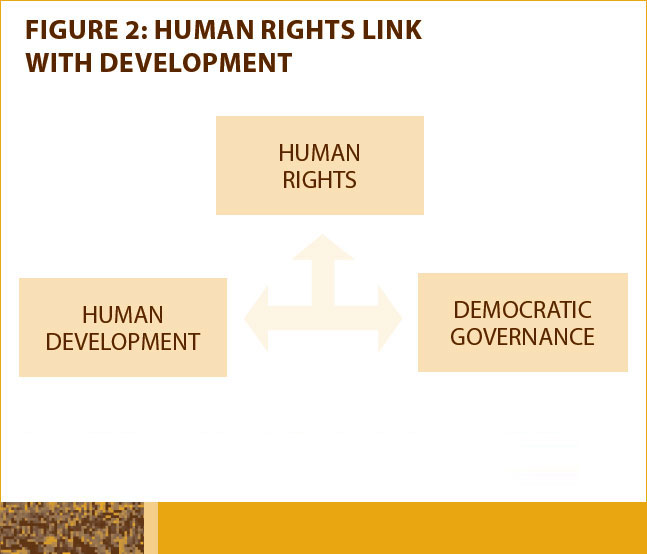5.4 NHRIs, democratic governance and national development priorities
The elements of what the development community calls “democratic governance” range from poverty alleviation to capacity development in the justice sector, to improving basic infrastructure and human services, to enhancing local decision-making. Democratic governance is an umbrella concept that frames many project documents and international development assistance programs.
Democratic governance provides the ‘enabling environment’ for human rights. At the Millennium Summit of 2000, the world’s leaders resolved to “spare no effort to promote democracy and strengthen the rule of law, as well as respect for all internationally recognised human rights and fundamental freedoms, including the right to development.” A consensus was reached which recognised that improving the quality of democratic institutions and processes, and managing the changing roles of the state and civil society in an increasingly globalised world must underpin national efforts to reduce poverty, sustain the environment, and promote human development.
Source: UNDP. About the Democratic Governance Process
As part of their own democratic governance projects, governments need to ensure a “voice” for these groups when public policy is being developed. NHRIs must do the same in their own work.
From a UN perspective, development programmes usually have a democratic governance component, which generally includes a range of justice projects, along with projects to increase the capacity and effectiveness of the State (including NHRIs) and local leadership, as well as civil society. Meeting country-specific or general targets in relation to MDGs or other internationally-agreed goals is part of this process. It is important to strike a fine balance - in supporting NHRIs, UNCTs must not impose their own priorities onto NHRIs, yet should remind NHRIs of the broader normative framework within which they work (these include ratified international instruments, MDGs, etc.).
One way of achieving this balance is through the strategic planning process. This has historically been an area where the UN (and UNDP and OHCHR in particular) have a good deal of working experience in supporting NHRIs.
